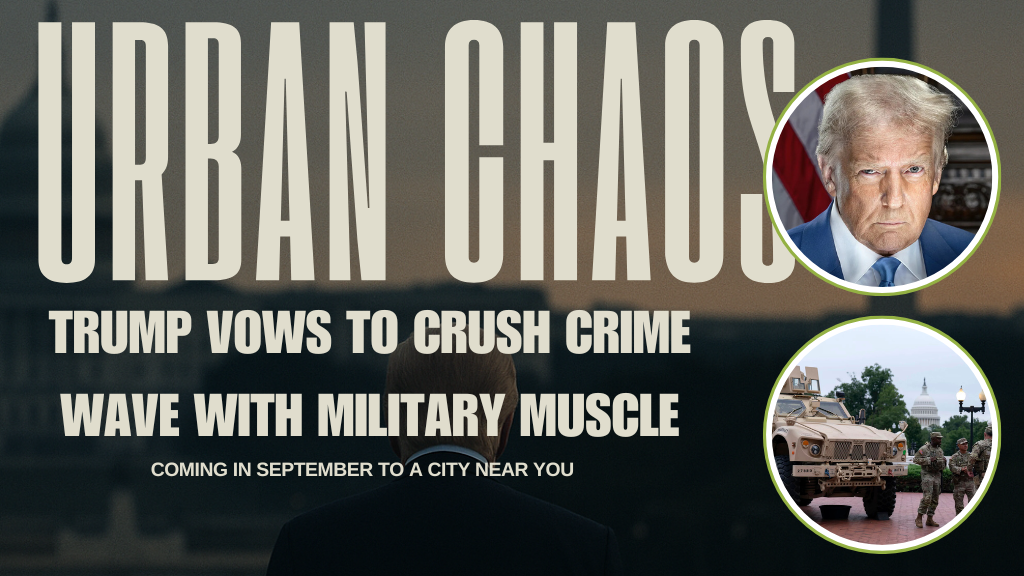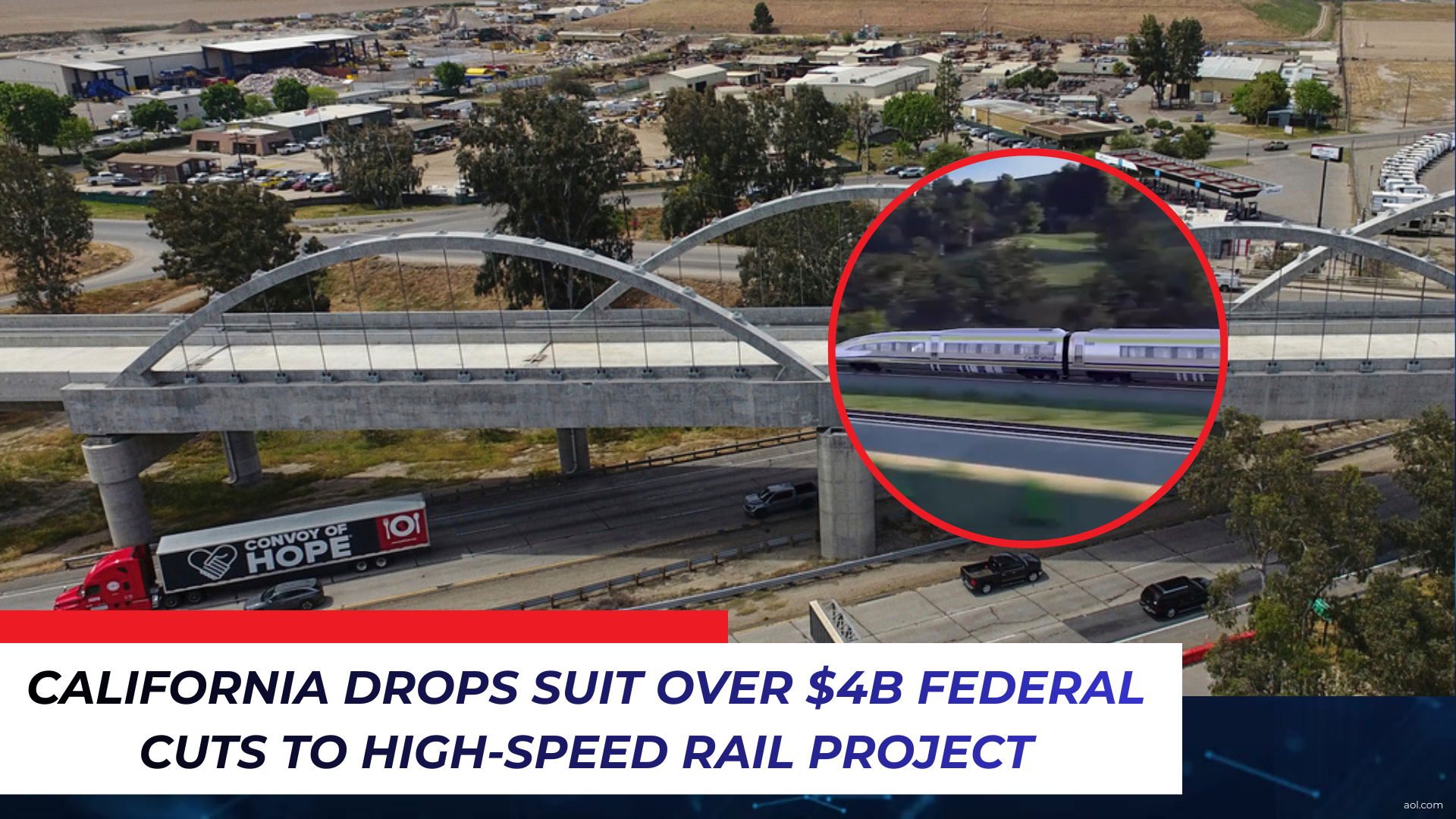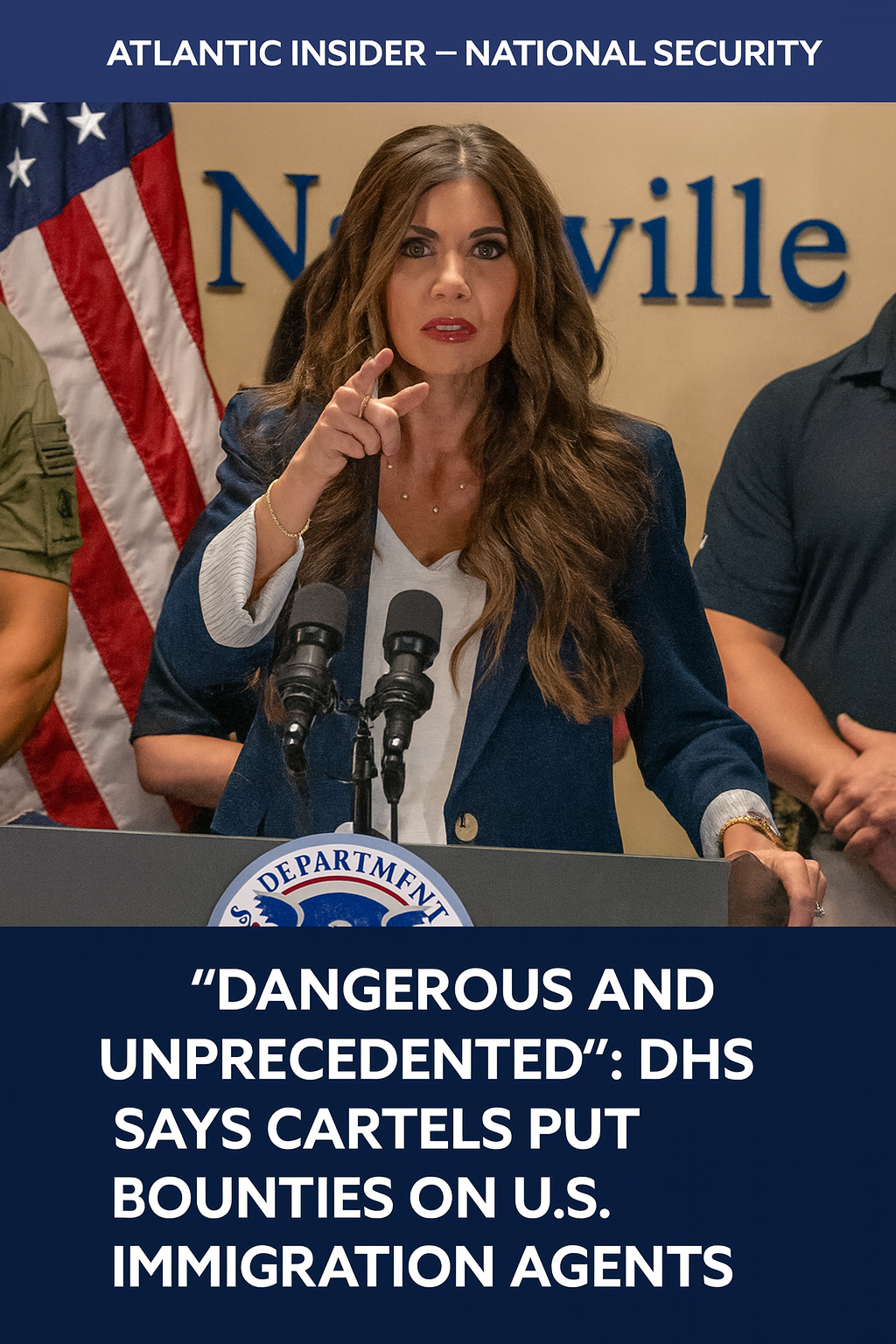The first duty of government is to keep its people safe. Without that assurance, every other civic promise—education, prosperity, democracy itself—loses its footing. That is why the condition of America’s cities, where violent crime and disorder remain stubbornly high, has become one of the nation’s defining tests.
President Trump, now vowing to “restore safety” to urban America, has floated the extraordinary idea of deploying federal troops and National Guard units into cities like Washington, Chicago, and Baltimore. The plan has unleashed howls from governors, mayors, and civil rights advocates, who see an unconstitutional power grab and a dangerous step toward militarized streets. They are right to raise the alarm. Yet they are wrong to pretend the underlying problem does not exist.
Homicides have surged in recent years. Washington, D.C., endured its highest murder toll in two decades in 2023. Chicago still struggles with gunfire even as it touts modest gains. Baltimore, despite welcome improvements, has not shaken its reputation for violence. Residents complain of carjackings, open-air drug markets, and lawless transit systems. Statistics ebb and flow, but the perception of insecurity is undeniable. And perception is reality: when citizens believe their streets are unsafe, they retreat from civic life, abandon businesses, and lose faith in local government.
That collapse of trust has opened the door for Trump’s interventionist stance. In truth, Washington has long stepped in when local authorities failed. Presidents Eisenhower and Kennedy did so to enforce civil rights. The current rationale—safety rather than rights—is less clear, but the principle endures: when local government cannot protect its citizens, federal responsibility cannot be ruled out.
But enforcement alone will never suffice. Deploying troops may suppress violence for a season, but soldiers eventually return to barracks. The conditions that breed crime—poverty, addiction, illegal guns, untreated mental illness—will remain. If Trump wishes truly to restore cities, he must move beyond rhetoric and embrace a broader vision.
That means targeted federal-local task forces to dismantle gangs and illegal gun networks. It means investing in mental health clinics and drug treatment. It means ensuring courts move cases swiftly, balancing accountability with fairness. It means expanding apprenticeship programs and schools that steer young people away from gangs and toward opportunity. Safety cannot be measured by arrests alone. It is measured by whether a shopkeeper can open her door, or a child can walk to school, without fear.
Local leaders, for their part, must take responsibility. Some cities experimented with cutting police budgets before building alternatives, or tolerated encampments without providing housing solutions. Citizens are weary of excuses. They want pragmatic leadership, not slogans. Federal intervention should be a scaffold, not a substitute, for local governance.
The debate over urban safety is ultimately a debate over democracy. If people believe their government cannot protect them, they withdraw from public life. They stop riding transit, avoid parks, leave schools, and abandon neighborhoods. That vacuum invites demagogues who promise order at the expense of liberty.
Trump faces a test as much moral as political. If he restores safety by trampling rights, he will deepen division. If he restores safety by pairing enforcement with compassion, firmness with fairness, he may deliver the stability citizens crave.
The path forward is neither partisan nor simple. It requires acknowledging uncomfortable truths: that disorder corrodes liberty as surely as over-policing does, and that cities need both cops on the beat and counselors in clinics. Safety is not a Republican or Democratic value. It is an American one.
For every commuter who boards a train, every shopkeeper who opens her door, every child walking to school, the promise is simple: they deserve to return home at night unharmed. That is the standard by which Trump—and all of America’s leaders—must be judged.
%20(4).png)





.png)

%20(12).png)
